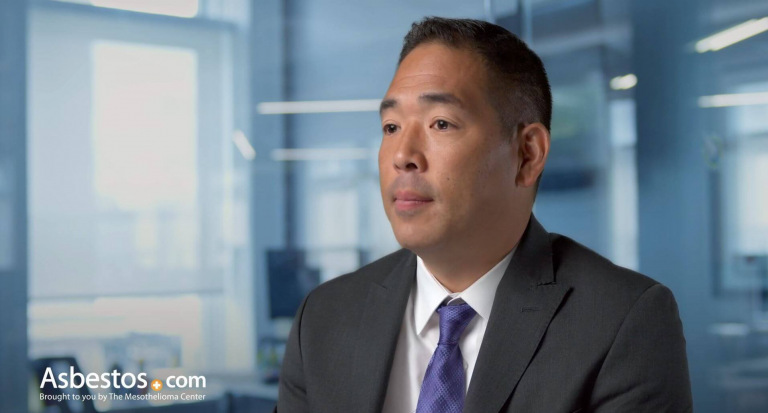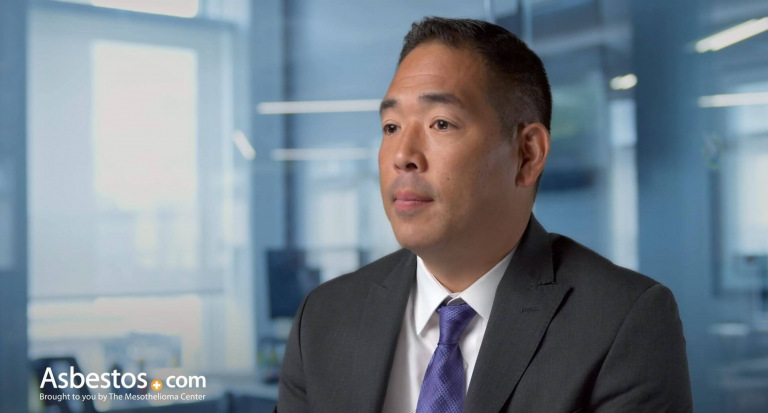Recovering From Mesothelioma Surgery
Recovery after mesothelioma surgery depends on the procedure and the patient, but it usually takes four to eight weeks. Most patients will feel like they are back to normal within three to four months and can expect to be back to their daily routines in six months.
How to Recover From Mesothelioma Surgery
Getting better after surgery requires a plan. That means doing physical activity like walking two to three times a day for 30 to 45 minutes. Eating healthy foods like fish (which has omega-3 fatty acids), chicken, fruits and vegetables.
You could also take vitamins each day to help you get better faster. If you had an aggressive surgery, your doctor will give you special instructions just for you that can help make recovery easier.
Going through mesothelioma treatment can be a big change in your life. It might help you live longer so that you can have more time to spend with your family and friends. This is the time to gather the support of your family, friends and community.
While experts consider tumor-removing surgery an essential component of multimodality treatment for long-term survival, not every patient qualifies for it. For those who do, the recovery period differs by the type of procedure. Patients who are candidates for pleurectomy/decortication may have an initial prolonged recovery (two to three weeks), but a faster long-term recovery, and those who undergo EPP might have a shorter initial recovery time (seven to ten days), but a prolonged long-term path to recovery.
Timeline for Recovery
For most tumor-removing surgeries, a hospital stay of at least two weeks is common. Recovery at home usually is less intensive — but lasts longer — from eight weeks to as long as a year. Any complications along the way might prolong recovery.
Every patient and treatment plan is unique to a patient, so no recovery timeline will be exactly alike. The time it takes to recover fully can vary depending on the stage of your cancer, your overall health and the specific course of treatment.
Recovery After Major Surgery
- Day 1: After the procedure, you will wake up with a few i.v. lines and drains in place. Some deliver painkillers and hydrating fluids to your body, while others drain your wound, stomach fluid. You may need to wear an oxygen mask to help with oxygenation. Pain or discomfort is common after surgery, so your doctors and nurses will work with you to develop an effective pain management plan.
- Week 1: Pleural mesothelioma patients can typically start eating and drinking again the day after surgery. Peritoneal mesothelioma patients may have to wait longer to give the bowels more time to recover. When you can eat and drink on your own, a nurse will remove your IV hydration catheter. As early as day two, your care team will guide you through deep breathing and gentle leg exercises. After a few days, you’ll be standing up and walking short distances. You won’t be able bathe or shower until your incisions are fully healed.
- Week 2: If recovery is going well, most patients can return home after one or two weeks in the hospital. Many patients might have traveled for surgery. It is recommended to stay locally for a couple of weeks after discharge from the hospital. You will have to progressively increase physical activities over several weeks. After about two weeks — sometimes sooner — you’ll return to the hospital to have your stitches or staples removed, your wounds checked and a chest X-ray taken.
- Week 3: You may feel more tired than usual and need to rest often. This is a natural response to the surgery. Be sure to maintain a gentle exercise program and continue your breathing exercises. Your care team will provide exercise guidelines and answer any questions about home care. If you experience any new pain, talk to your doctor about what is causing it.
- Week 4-8: It could take between six and eight weeks before your normal energy levels return. You should get a little stronger each day, but avoid overly strenuous activities. You shouldn’t lift anything heavier than 10 pounds for six to eight weeks after open surgery, or about two weeks after minimally invasive diagnostic surgery. You may be healthy enough to go back to work four to six weeks after surgery, but always check with your doctor first. Sometimes it can take months before patients start feeling normal. Be sure to get plenty of rest, and don’t rush your recovery.
A treatment plan combining surgery and one or more additional therapies may extend the recovery process. Chemotherapy and radiation therapy can cause fatigue and other undesirable side effects, but otherwise might not interfere with your daily life.
Before you commit to a treatment plan based on your local doctor’s advice, it’s important to familiarize yourself with each treatment option and the recovery phase that lies ahead.
Recovery From Invasive Mesothelioma Surgeries
Tumor-removing surgery is significantly more invasive than diagnostic surgery. The goal is to remove as much of the cancer as possible. These surgeries take hours to complete and require a hospital stay of approximately two weeks. Recovery at home depends on the extent of the surgery and may take two months to a year.
Extrapleural pneumonectomy is considered the most aggressive surgery for pleural mesothelioma. It removes the cancerous lung, the diaphragm, nearby lymph nodes and the lining of the heart and lung. EPP patients usually stay in the hospital for seven to ten days. Full recovery from the aggressive EPP procedure usually takes six to eight weeks, but may extend to three to four months.
Pleurectomy and decortication is considered less aggressive than EPP. It removes the lung lining and any parts of the lung, diaphragm, chest wall and heart lining that appear cancerous. Patients who received a P/D should expect a hospital stay of about two weeks. Recovery from the lung-sparing P/D procedure ranges from four to six weeks.
Peritoneal Mesothelioma Surgery Recovery
Peritoneal mesothelioma patients often benefit from cytoreductive surgery and heated intraperitoneal chemotherapy (HIPEC). The surgical part of this procedure aims to remove as much cancerous tissue as possible from the abdomen. It removes the lining of the abdomen and parts of organs that appear cancerous such as the stomach, intestines, liver, spleen and pancreas.
Patients can expect a hospital stay of at least two weeks. Recovery from cytoreductive surgery and HIPEC depends on the extent of surgery and ranges from six weeks to a year, but it can add years to life expectancy.
Recovery From Diagnostic Surgery
Surgery is also used to diagnose mesothelioma. Diagnostic surgeries are less invasive than surgeries that remove tumors. It takes less time to recover from diagnostic surgery than tumor-removing surgery.
- Laparoscopy: This surgery gives doctors an inside look around the abdomen and allows them to collect tissue samples for cancer testing. Some patients go home the same day of surgery, while others may stay overnight for monitoring. Pain around the incision site and around the abdomen may last for several days. Bloating, shoulder pain and general discomfort should go away within a few days. Full recovery takes about a week and patients should limit activity during that time.
- Paracentesis: This procedure drains excess peritoneal fluid from the abdomen and a sample of the fluid is collected to test for signs of cancer. Once a sufficient amount of fluid is drained, patients stay at the hospital for several hours or may need to stay overnight to watch for complications and signs of infection. At home, patients will clean the incision site to prevent infection. Patients also need to limit activity for 24 hours.
- Thoracentesis: This procedure drains excess pleural fluid from around the lungs and some of the fluid is sent off for diagnostic testing. It is important to know that a negative thoracentesis does not exclude the possibility of mesothelioma. Recovery depends on how much fluid needs to be drained. It usually is done as an outpatient procedure. At home, patients will need to keep the incision site clean and avoid moderate or strenuous activity for several days.
- Thoracoscopy: Also known as video-assisted thoracic surgery (VATS), this procedure should be considered whenever the diagnosis of mesothelioma is considered. It gives doctors an opportunity to look inside the chest cavity. Doctors can drain excess pleural fluid with a chest tube and collect tissue samples for testing. Patients remain in the hospital until the excess fluid is fully drained, which may take several days. When patients leave the hospital they will need to keep the incision site clean, limit activity and avoid driving while on pain medication. Recovery at home takes about one week.
Diagnostic surgeries are minimally invasive and recovery usually takes a few days to a week. These surgeries involve just a small incision to give doctors access to the chest cavity or abdominal cavity. Doctors insert a small tube through the incision to collect tissue or fluid samples, also called biopsies. These samples are tested for signs of cancer.

Find the top cancer centers trusted by mesothelioma patients nationwide.
Get Help NowMultimodal Therapy Can Prolong Recovery
If you’re healthy enough for mesothelioma surgery, there’s a good chance your doctor will recommend additional treatments before, during or after the procedure. This approach, known as multimodal therapy, currently offers the best hope for long-term survival.
It is important to understand a combined approach to treatment can affect your recovery time. A multimodal therapy plan that incorporates surgery typically lengthens recovery time, but all patients respond to treatment differently.
Multimodal therapy can include any combination of surgery, chemotherapy and radiation therapy as well as experimental treatments such as immunotherapy. The length of your recovery will vary depending on the treatments you choose and how your body reacts to them.
Chemotherapy
Most chemotherapy is done on an outpatient basis and takes a few hours to complete. Heated chemotherapy requires a hospital stay of a week or more.
Certain side effects may last for weeks or months after your last chemotherapy cycle. For example, peripheral neuropathy, which is a type of nerve pain in the extremities, may develop during or after treatment. The symptoms of peripheral neuropathy may peak three to five months after your last cycle. Pain medication and complementary therapies are available to help people through recovery.
Chemotherapy is a weird thing to describe to people who never lived it. At times, you just don’t feel right, but it’s hard to always pinpoint why. Your body just gets out of sorts.
Chemotherapy can also lead to thinking and memory problems commonly called chemo brain. Chemo brain symptoms typically only last a short time and fade as chemotherapy ends. But some patients experience cognitive dysfunction long after treatment is over, and there are cases where patients never fully regain mental ability.
Side effects can be difficult to manage, so ask your doctor about what to expect and how you can cope. Most patients feel weak or drained after chemotherapy, but the tiredness generally subsides after a few days. Once it passes, you may feel even better than before.
Radiation Therapy
Like chemotherapy, radiation therapy is an ongoing treatment that can drain your energy and cause fatigue. If you opt for radiation therapy, the most common side effects include fatigue and redness, irritation and hair loss around the treatment area.
Radiation therapy for mesothelioma typically lasts four to five weeks, with five 30- to 60-minute sessions each week. Fatigue tends to increase as treatment progresses and then improves after therapy ends. Make sure to get plenty of rest.
Having chemotherapy before or at the same time as radiation therapy can make the skin reaction worse. Your doctor may recommend that you avoid applying soap, lotion, perfume and cosmetics to the treatment area. Talk to your doctor about the best way to care for skin irritation. You will need to schedule regular follow-up appointments with your doctor once treatment ends.

The most important thing for patients after surgery is to walk, to move. And it doesn’t even have to be walking long periods of around the hall. It has to be just even sitting up. We know that even sitting up for two to four hours is equivalent to walking a mile in patients that just had surgery two days prior.
Post-Treatment Physical and Emotional Challenges
It’s difficult for the body to recover from mesothelioma treatment, particularly when surgery is part of your treatment plan. Regardless of the treatments you receive, there likely will be emotional hurdles to overcome as well.
The days following chemotherapy and radiation therapy may feel exhausting, but as long as you have the energy, you should be able to perform normal daily activities. You need to be more careful with physical activity after major surgery because the recovery process is much longer. A good balance of gentle exercise and rest can help alleviate fatigue from treatment. If you feel pain during any type of activity, stop immediately. You may want to consider meeting with a physical therapist to help regain strength.
While you work on your physical recovery, don’t neglect your emotional needs. Cancer treatment is never easy, and it’s perfectly normal to feel a wide range of difficult emotions, including sadness, anxiousness and fear.
Studies show many cancer patients can achieve a higher quality of life by joining a support group and sharing their feelings and experiences with others. If support groups aren’t for you, there are plenty of other outlets that might fit your situation and personality better. You can also seek emotional support from family, friends, spiritual groups or one-on-one counseling.
Surviving cancer may be one of the greatest challenges you’ll ever face, but you don’t have to face it alone. It’s not easy to stay upbeat throughout treatment, but a positive attitude and a solid support system can help tremendously on the road to recovery.
Recommended Reading










